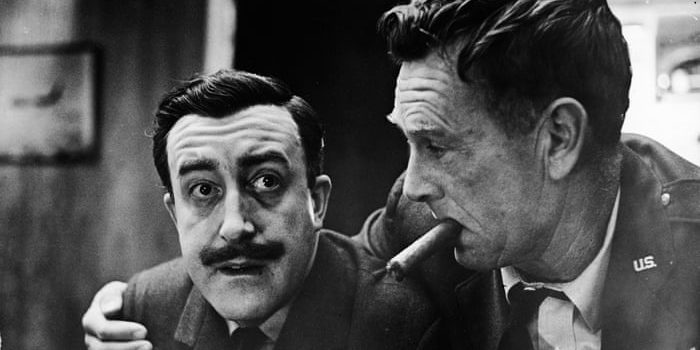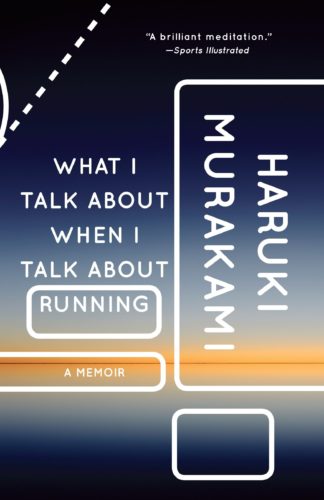
For Chris Crane
As we approach the end of our shelter-in-place orders, I have been reflecting on how, although I have an anxiety-based disorder, I have not panicked from the external crisis or from being sequestered. Paradoxically, the coronavirus has given me an outward threat to direct my attention toward, distracting me from my irrational, intrusive fears. I would maintain that my response has much to do with the current equilibrium I am experiencing. But I believe that my psychological state owes more to the strengthening effects of past pain than to my disposition to fret more over my thoughts than my circumstances.
Entering my late thirties, I have had three major depressive episodes. By major, I mean that I was hospitalized, debilitated, and withdrawn for months, and at its worst, a year at a time. There are many feelings that I can recall overwhelming me during those times. One of the most vivid and prevalent emotions was the feeling of being trapped or a kind of nowhere-to-go-ness (the psychological term is anhedonia).
Depression is quarantine. It is a sequestering of the mind. While I had all of the options available to me in my non-depressed state, none of them offered relief from the emotional and physical pain I had. Even sleep, that natural remedy, proved to be a mock medicine as I was beset by night terrors. Thus, as I have observed some of my friends discussing on social media how torturous the quarantine has been for them, I have wondered, “Why have I not felt the same way?”
In his book, What I Talk About When I Talk About Running, Haruki Murakami says, “Emotional hurt is the price a person has to pay in order to be independent.” By “independent,” Murakami means, “being able to handle isolation or loneliness.” Going through such confining, depressive episodes, I believe the Lord has changed me by equipping me with the ability to experience isolation and loneliness. Moreover, my experiences have enabled me to choose self-care strategies rather than to succumb to a kind of defeatism.
 I want to be careful here. I am not wishing to silver-line depression; pain is not some kind of ironic panacea. I do believe that my mental imprisonment has required me to learn coping skills I otherwise would have ignored. Now, in the face of feeling trapped, I can meditate, practice radical acceptance, or create lists that help me refocus and gain a sense of achievement. Before, I shirked schedules, until I realized how therapeutic they could be in the free fall of depression.
I want to be careful here. I am not wishing to silver-line depression; pain is not some kind of ironic panacea. I do believe that my mental imprisonment has required me to learn coping skills I otherwise would have ignored. Now, in the face of feeling trapped, I can meditate, practice radical acceptance, or create lists that help me refocus and gain a sense of achievement. Before, I shirked schedules, until I realized how therapeutic they could be in the free fall of depression.
And yet it is not only the sensation of being trapped that makes depression analogous to quarantine. During my mental health struggle, I sensed an expanding and perpetual feeling of uncertainty. Similar to how many of us have felt about the quarantine, when I was depressed I constantly asked my loved ones, “When is this going to end?” I was in intense pain and longing for relief. Those who have suffered in like fashion know the agony that I am describing.
While I was in group therapy, one of the counselors imparted a piece of wisdom. They said, “The degree to which we can accept ambiguity is the degree to which we are emotionally healthy.” The more I ruminate on that truth the more far-reaching I realize its application is. One of the sadistic ironies of depression is that, while you have to act in order to begin to recover, you cannot really act. In fact, depression is accentuated the more you think about progress or make plans to arrive at happiness. It is only when you stop focusing on your emotional state or when you will be happy again that you realize that most moods are ambiguous. The need for certainty underlines despair. Further, the acceptance of uncertainty liberates the mind to process other experiences. It lifts the self-imposed quarantine. Addiction is something that should be treated sooner and drug rehab tn has professionals that can help overcome such issues.
Learning the skill to do that internally then naturally extends to the ability to do that externally. If I am uncertain about what my state of mind will be tomorrow, how much more the state of the world? As a result, the only way to live is in a state of mindfulness, being present in a way that becomes as automatic as seeing. If depression drives us into the past to desire a better time, then anxiety sends us spinning into the future, worrying what will be. Accepting uncertainty does neither, but teaches us to inhabit the moment in a way that focuses on the needs of the day. I think of Jesus’ words in Matthew 6:34 and how often what is underemphasized is his insistence that each day has its own problems. Tolerating ambiguity does not mean there will not be struggles but that you do not have the omniscience to see them.
And, as we live in this uncertain present moment, let us take shelter not in CDC guidelines or our own homes but in the reality that Christ was contaminated for us, quarantined in the tomb, and liberated in his resurrection. One day we will no longer be social distancing but be gathered with him and all the saints, world without end. Amen.

COMMENTS
5 responses to “How Depression Prepared Me for the Coronavirus or: How I Learned to Stop Worrying and Love the Uncertainty”
Leave a Reply













Trevor, this is fantastic— it’s saturated with a theology of the cross and speaks right from the heart of hurt to others’ hurts. It has the gentle authority of a compassionate doctor breaking the news of a diagnosis but promising to see us through our ailment. Cheers!
Ian, thank you so much for your specific, laudatory feedback. I am so grateful for your friendship, and I am strengthened by the painful parallels in our struggles. Having such praise from a serious thinker and gifted writer as yourself means a lot to me. I am glad to stare down the monster with you. Christus Victor, brother.
“It is only when you stop focusing on your emotional state or when you will be happy again that you realize that most moods are ambiguous. The need for certainty underlines despair.” This feels spot-on. Thanks for putting all this in words, Trevor. Your experience is both powerful and helpful!
It has been named. Uncertainty. That has been the struggle for me during this time. I pray for the serenity to accept the particular uncertainties of “the recent unpleasantries”. It is not mine to “figure it out”. It has been said at an Al Anon meeting ‘“figure it out” is not one of our slogans; “figure it out alone” is not one, either.’
I am reminded what John Piper said of William Cowper, concerning his battle with depression. “His certainties were not sureties. So it will always be with the deceptions of darkness”. Cowper’s hymnody reinforced “God moves in a mysterious way”, The cross is “certainly” an example of uncertainty.
Than you, Trevor, for helping me to acknowledge this dis-ease.
For several decades I have privately recorded periodic epiphanies in an attempt to express what its like to be in a place not of my choosing but also a place not responsive to any attempt or strategy to leave. I have encountered nothing that expresses the ambiance of that experience as clearly as your account. Few who have not been there can comprehend the challenges found there. Likewise, few who have not been there can appropriately utilize the subtleties of language required to tease out the details of an abstraction that, at base, will always be individual and personal. It has also occurred to me that decades of dealing with depression prepared me in a certain way to productively encounter the unique challenges we face. You have been blessed with a unique combination of gifts of insight and expression. Today you have, in turn, been a profound blessing to me. Thank You!